Politics, ethics and economy
Agricultural land on Earth is limited. However, the increased need for food and feed coupled with the increasing use of biomass feedstocks leads to areas of conflict such as intensive farming, biodiversity loss, land grabbing and indirect land use change. Governments are faced with the major challenge of having to deal with and shape the bioeconomy while taking equally into account the ecological, economic and ethical concerns and integrating them in sustainable solutions.
-
Review - 09/02/2023

The societal importance of genetic technologies was demonstrated during the coronavirus pandemic, when it was possible to rapidly develop suitable vaccines thanks to genetic engineering methods. As a result, the Fifth Gene Technology Report published in autumn 2021 reads like a validation of many years of work, as well as making it clear that the will to continue the detailed long-term monitoring is very much present.
-
ProteinDistillery GmbH - 20/04/2022
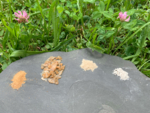
Yeast has been part of the human diet for thousands of years. ProteinDistillery GmbH now wants to revolutionise the environmentally friendly protein suppliers market by introducing brewer's yeast and secure the protein supply of the future.
-
Alternative foodstuff ? - 09/03/2022
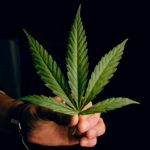
If there were a competition for the ‘crop of the future’, hemp would certainly be at the top. But not because of the intoxicating effect of some hemp varieties. Cannabis has the potential to help supply protein in the quantities required by a growing world population – in a sustainable way. The TASTINO project brings together researchers from academia and industry to work on ways to make the regional superfood available as a vegan alternative.
-
Alpha-Protein GmbH - 27/07/2021
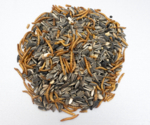
Mealworms instead of fish meal and soybean meal - this is what the sustainable future of feed production looks like as Alpha-Protein GmbH see it. The company has built a highly efficient automated production plant in which residual materials from local food production are used to breed mealworms.
-
EIP-AGRI project coordination - 12/12/2019
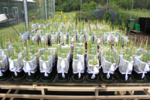
Lentil plants, rarely cultivated in Central Europe in the twentieth century, are making a comeback. The "Rhizo-Linse"1 EIP-AGRI project aims to reintroduce old lentil varieties and make them appealing to farmers. A company called nadicom Gesellschaft für angewandte Mikrobiologie mbH is working on the development of an ecological product consisting of nodule bacteria that can improve lentil plant growth.
-
Article - 10/01/2019
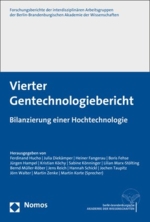
In the new gene technology report, the interdisciplinary working group of the Berlin-Brandenburg Academy of Sciences (BBAW) takes stock of gene technology developments in Germany during the past few decades, and discusses the societal, legal and ethical challenges associated with these technologies in the future. The report is highly topical due to the controversy surrounding the ruling of the European Court of Justice on CRISPR/Cas9 genome…
Website address: https://www.biooekonomie-bw.de/en/articles/politics





